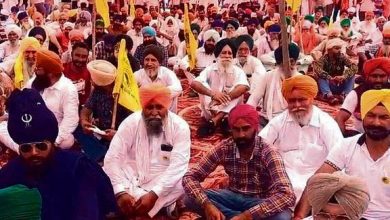Punjab: New book advocates humanity, humour and heart in judiciary

Punjab: Can a judgment quote Bon Jovi and make you smile, while also making rigorous legal arguments? A new book published today suggests — why not? Titled “Shaping Judges: Essays in Honour of Dr Balram K. Gupta”, the book collects thought-provoking essays from India’s leading judicial experts, including 10 sitting Supreme Court judges. Of these, Justice Surya Kant’s essay — “Humour in Judgment Writing” — makes a case for inculcating wit in the law. Justice Kant does not advocate replacing precedent with jokes, but suggests that light-hearted remarks can clarify the law rather than weaken it. “Judges are not wooden robots. They drink the same water, eat the same food and watch the same movies,” he writes. The book, edited and introduced by Shruti Bedi, is a tribute to her father, eminent jurist and mentor Professor (Dr) Balram K. Gupta. This essay is a personal and scholarly tribute to Gupta. His decades-long influence on judicial training, ethics and legal education is clearly visible in this collection, which includes contributions from judges, scholars and legal philosophers who have come in contact with him or influenced him.
In his essay, Justice Surya Kant says that judgment writing is often the only medium of expression for judges. “For judges there are no novels or op-eds – there is only the judgment. If humour used sparingly can provide clarity and improve engagement, why shy away from it?” He is, however, careful to set a limit: “Humour should never be derogatory. The dignity of the litigants must remain intact.” He recalls instances where creativity has been welcomed – and one example is from Kansas where rhyming led a judge to overturn a conviction for judicial negligence. As he says, “Humour should not be the tail that wags the judgment.” But Justice Kant is not the only one to use the pen to go beyond procedure. Part A of the book, titled “Essays and Discourses”, features views by Justice B.V. Nagarathna on judicial training, Justice Sanjay Karol on public trust and confidence, Justice D.Y. Chandrachud on the judiciary and the media, and Justice A.K. Sikri on unconscious bias in judicial decision-making. From “The Talkative and the Silent Judge” (Justice Girish S. Kulkarni) to “Creating a Happy Judicial Mindset” (Justice Tarlok Singh Chauhan), the book charts the philosophical, procedural and emotional landscape required to be a judge in contemporary India.
The contributors are giants of the judicial field – Justices Rajesh Bindal, Joymalya Bagchi, Swatanter Kumar, Adarsh Goel, A.K. Patnaik and Dr. Justice S. Muralidhar, among others, offer their views on topics ranging from judicial ethics to artificial intelligence in the courtroom. Part B – Tributes and Testimony – provides deeply personal insights into Professor Gupta’s legacy. From Justice GS Singhvi’s “A Great Human Being” to Justice Madan Lokur’s “The Socrates Edict” and Justice Arun Monga’s “A Journey Nothing Short of Epic”, these tributes show how one man’s guidance shaped the moral compass of an entire generation of judges. The foreword, written by Shruti Bedi, is not only a daughter’s tribute but also a rare reflection of how family, scholarship and values have come together to build a legal legacy. She calls her father “a quiet force” who shaped others not with noise, but with wisdom. Professor (Dr) Bedi is Professor of Law and Director at the University Institute of Legal Studies, Punjab University. An internationally recognised legal scholar, she is an International Fellow at the National Institute of Military Justice in Washington DC and a Visiting Professor at Universitas Airlangga, Indonesia. She is also the director of the Center for Constitution and Public Policy. The book does not quote landmark judgments—but it does make a landmark point: that judges are human beings, too. And sometimes, a little humor helps them deliver more humane justice.





